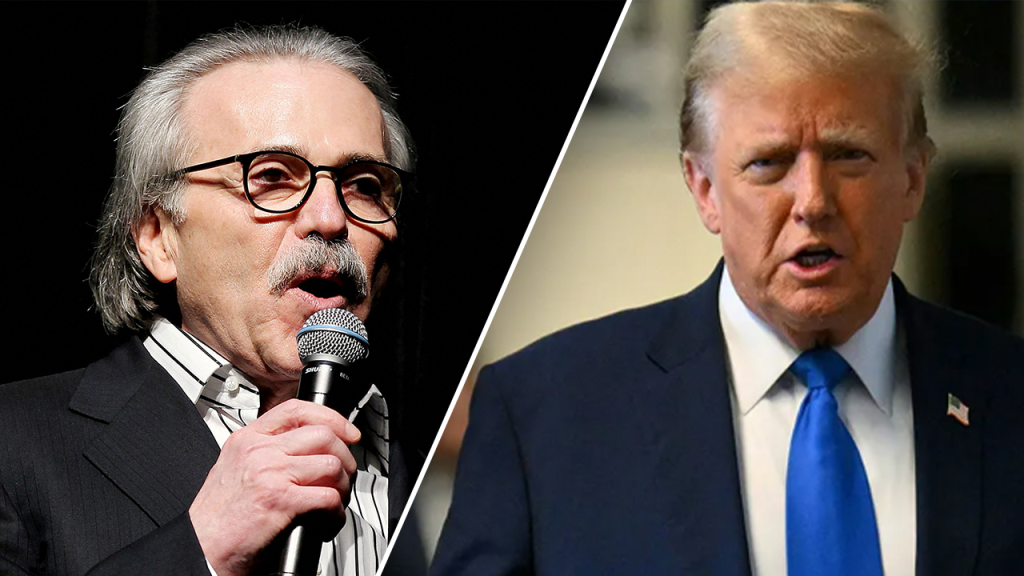Former President Trump’s trial in Manhattan saw its first witness called by the district attorney’s office, former publisher David Pecker, who played a key role in a “catch and kill” scheme ahead of the 2016 election. Pecker, who previously chaired American Media Inc., provided insight into the company and his tenure as CEO. The trial, the first time a former president has faced criminal charges, concluded early on Monday after a juror required a dental appointment. Trump is facing 34 counts of falsifying business records in connection to payments made to Stormy Daniels to silence her claims of an affair with him.
The case against Trump focuses on the alleged catch-and-kill scheme used to bury negative information during the election, including the payment to Stormy Daniels. Prosecutors allege that the Trump Organization reimbursed Michael Cohen for payments to Daniels and Karen McDougal to conceal damaging stories. The trial will also examine payments made to a Trump Tower doorman who claimed Trump fathered a child out of wedlock. Trump vehemently denies all allegations and has pleaded not guilty to the charges against him, which include fraudulent record-keeping and election law violations.
Trump’s defense team has characterized the trial as politically motivated, with the former president claiming it is an attempt to persecute him and his supporters. Trump arrived at the courthouse after the jury was sworn in and instructed to consider the evidence fairly without requiring Trump to testify in his own defense. Judge Juan Merchan emphasized the importance of maintaining confidentiality during the trial, forbidding the jurors from discussing the case or conducting their own research. Trump condemned the trial as an attack on him as a political opponent.
The trial proceedings included testimony from Pecker about his role at the National Enquirer and American Media Inc., shedding light on the catch-and-kill practices utilized during the 2016 election. Prosecutors aim to prove that Trump falsified records with the intention of concealing criminal activity, including potential election law violations. The defense team will likely present evidence challenging the prosecution’s claims and asserting Trump’s innocence. The trial is a significant moment in legal and political history, highlighting the accountability of public figures for their actions.
The case against Trump also includes payments made to silence allegations of affairs with Stormy Daniels and Karen McDougal, with the prosecution alleging fraudulent record-keeping and cover-up attempts by the Trump Organization. Trump’s denial of the allegations and his refusal to testify underscore the contentious nature of the trial. The involvement of high-profile figures such as Pecker and Cohen adds complexity to the proceedings. The outcome of the trial will have far-reaching implications for Trump’s political future and the broader discourse on accountability in public office.
Despite Trump’s vocal criticism of the trial as a form of political persecution, the legal process will proceed based on evidence presented and testimonies heard. The jurors will have the crucial task of evaluating the facts and arguments to determine Trump’s guilt or innocence. The trial represents a significant moment in American legal and political history, testing the boundaries of accountability for public figures and the justice system’s ability to uphold the rule of law. The proceedings will continue to draw public attention and scrutiny as they unfold in the coming days.


